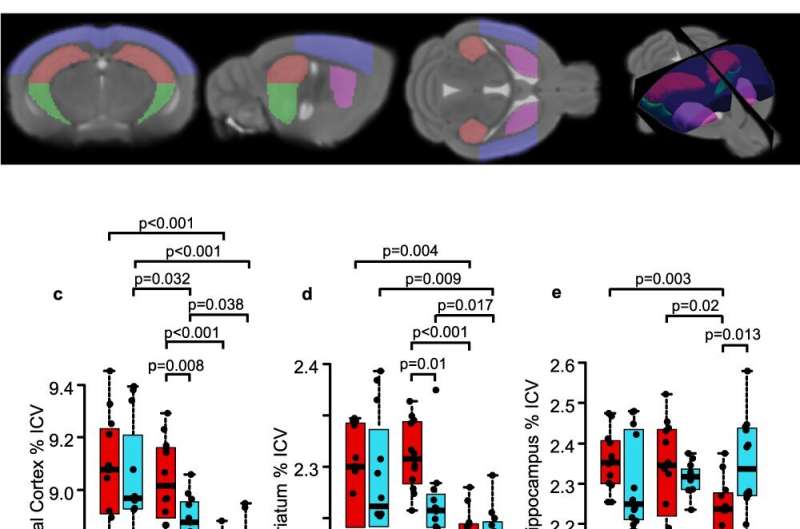This article has been reviewed according to Science X's editorial process and policies. Editors have highlighted the following attributes while ensuring the content's credibility:
fact-checked
peer-reviewed publication
trusted source
proofread
Menopausal hormone changes linked to cognitive deficits

A new study led by UCLA neurologist Dr. Rhonda Voskuhl sheds light on the underlying mechanisms linking menopause to cognitive deficits and brain atrophy, revealing a crucial role for estrogen receptor beta (ERβ) in astrocytes. The study, conducted on female mice, identified the specific brain regions and mechanisms responsible for the cognitive changes experienced during menopause.
The work is published in the journal Nature Communications.
The research found that loss of ovarian hormones in female mice during midlife, but not at a younger age, induced cognitive impairment. This revealed that both aging and loss of estrogen were critical to cognitive deficits. Additionally, brain MRIs of these midlife female mice demonstrated atrophy of the dorsal hippocampus, a brain region central to memory and learning, and pathology revealed activation of astrocytes and microglia, with synaptic loss.
Selective deletion of estrogen receptor beta (ERβ) in astrocytes, a supportive brain cell, had the same detrimental effects on the brain as hormone loss, suggesting that ERβ in astrocytes plays a pivotal role in maintaining hippocampal function during menopause. To translate their findings to humans, the researchers showed that changes in gene expression in the hippocampus of estrogen deficient midlife female mice involved abnormal glucose utilization, and expression of a key gene in this pathway also occurred in post-menopausal women.
Aiming to prevent deleterious effects of estrogen deficiency at midlife, mice treated with an ERβ ligand had improved cognition and reversal of the neuropathological changes observed in the dorsal hippocampus. While further research is needed to translate these findings into clinical applications for human patients, the study marks a significant step toward understanding the brain's response to hormonal changes during menopause and offers hope for potential treatments in the future.
More information: Noriko Itoh et al, Estrogen receptor beta in astrocytes modulates cognitive function in mid-age female mice, Nature Communications (2023). DOI: 10.1038/s41467-023-41723-7




















